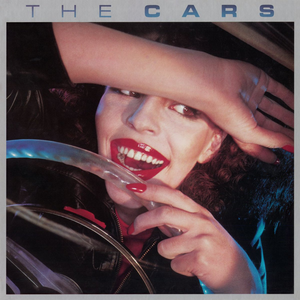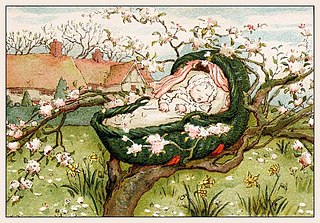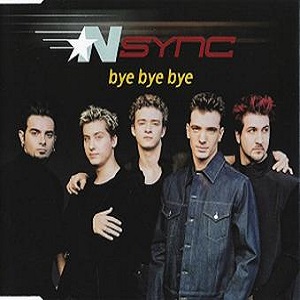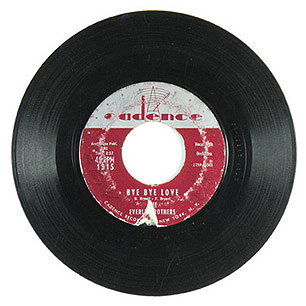Related Research Articles

The Cars were an American new wave band formed in Boston in 1976. Emerging from the new wave scene in the late 1970s, they consisted of Ric Ocasek, Benjamin Orr, Elliot Easton, Greg Hawkes (keyboards), and David Robinson (drums). Ocasek and Orr shared lead vocals, and Ocasek was the band's principal songwriter and leader.

The Cars is the debut studio album by American new wave band The Cars, released on June 6, 1978, by Elektra Records. The album was managed by longtime producer Roy Thomas Baker, and spawned several hit singles, including "Just What I Needed", "My Best Friend's Girl", and "Good Times Roll", as well as other radio and film hits such as "Bye Bye Love" and "Moving in Stereo". The Cars peaked at number 18 on the US Billboard 200 albums chart, and has been certified six-times platinum by the Recording Industry Association of America (RIAA).
Ray Henderson was an American songwriter.

The Blues Magoos are an American rock group from The Bronx, a borough of New York City, United States. They were at the forefront of the psychedelic music trend, beginning in 1966. They are best known for the hit song "(We Ain't Got) Nothin' Yet", their only single to reach the Billboard top fifty.

Marvin Frederick Hamlisch was an American composer and conductor. Hamlisch was one of only 18 people to win Emmy, Grammy, Oscar and Tony awards, a feat dubbed the "EGOT". He and composer Richard Rodgers are the only people to have won those prizes and a Pulitzer Prize ("PEGOT").

Bye Bye Birdie is a stage musical with music by Charles Strouse and lyrics by Lee Adams, based upon a book by Michael Stewart.

Charles Strouse is an American composer and lyricist best known for writing the music to such Broadway musicals as Bye Bye Birdie, Applause, and Annie.
Rexton Rawlston Fernando Gordon, better known by his stage name Shabba Ranks, is a Jamaican dancehall musician. In the late 1980s and early 1990s, he was one of the most popular Jamaican musicians in the world. Throughout his prominence in his home country as a dancehall artist, he gained popularity in North America with his studio album, Just Reality, in 1990. He released two studio albums, As Raw as Ever and X-tra Naked, which both won a Grammy Award as Best Reggae Album in 1992 and 1993, respectively. He is notoriously popular for "Mr. Loverman" and "Ting-A-Ling", which were globally acclaimed and deemed his signature songs.

Robert Louis Ridarelli, known by the stage name Bobby Rydell, was an American singer and actor who mainly performed rock and roll and traditional pop music. In the early 1960s he was considered a teen idol. His most well-known songs include "Wildwood Days," "Wild One" and "Volare" ; in 1963 he appeared in the musical film Bye Bye Birdie.

"Bye Bye Baby" is a song recorded by American singer and songwriter Madonna, for her fifth studio album Erotica (1992). It was released on November 15, 1993, as the sixth and final single from the album only outside the US. "Bye Bye Baby" was written by Madonna, Shep Pettibone, and Anthony Shimkin and was produced by Madonna and Pettibone. The song is inspired by Madonna's emotions of that time and her S&M thoughts. Musically, it is a hip hop song, sampling a hook from LL Cool J's track "Jingling Baby", released in 1990. Madonna's vocals were filtered to make them appear as sound coming out from an answering machine. "Bye Bye Baby" features instrumentation from keyboard and lyrically finds Madonna asking questions to a lover she is about to abandon.

"Rock-a-bye baby on the tree top" is a nursery rhyme and lullaby. It has a Roud Folk Song Index number of 2768.

"Bye Bye Blackbird" is a song published in 1926 by Jerome H. Remick and written by composer Ray Henderson and lyricist Mort Dixon. It is considered a popular standard and was first recorded by Sam Lanin's Dance Orchestra in March 1926.

"Bye Bye Bye" is a song by American boy band NSYNC from their third studio album, No Strings Attached. It was released on January 17, 2000, as the lead single from the album. The song was written and produced by Kristian Lundin and Jake Schulze, with additional writing by Andreas Carlsson. Its lyrics describe the end of a romantic relationship; it was reported to also reference the group's separation from their manager Lou Pearlman and their record label RCA Records.

"Bye Bye Love" is a popular song written by Felice and Boudleaux Bryant and published in 1957. It is best known in a debut recording by the Everly Brothers, issued by Cadence Records as catalog number 1315. The song reached No. 2 on the US Billboard Pop charts and No. 1 on the Cash Box Best Selling Record charts. The Everly Brothers' version also enjoyed major success as a country song, reaching No. 1 in the spring of 1957. The Everlys' "Bye Bye Love" is ranked 210th on Rolling Stone magazine's list of "The 500 Greatest Songs of All Time".

"Rock-a-Bye Your Baby with a Dixie Melody" is a popular song written by Jean Schwartz, with lyrics by Sam M. Lewis and Joe Young. The song was introduced by Al Jolson in the Broadway musical Sinbad and published in 1918.
A music genre is a conventional category that identifies some pieces of music as belonging to a shared tradition or set of conventions. It is to be distinguished from musical form and musical style, although in practice these terms are sometimes used interchangeably.

"Bye Bye" is a song by American singer and songwriter Mariah Carey, taken from her eleventh studio album, E=MC² (2008). She co-wrote the song with its producers Mikkel S. Eriksen, Tor Erik Hermansen and Johntá Austin. It was released as the album's second single on April 15, 2008 by Island Records. The song is influenced by pop and R&B music genres, and features a piano and keyboard-driven melody. Lyrically, the song is a dialogue in between Carey and her deceased father throughout the verses, and a universal salute to departed loved ones on the chorus.
Popular music is music with wide appeal that is typically distributed to large audiences through the music industry. These forms and styles can be enjoyed and performed by people with little or no musical training. It stands in contrast to both art music and traditional or "folk" music. Art music was historically disseminated through the performances of written music, although since the beginning of the recording industry, it is also disseminated through recordings. Traditional music forms such as early blues songs or hymns were passed along orally, or to smaller, local audiences.

Bridge Over Troubled Water is the fifth and final studio album by American folk rock duo Simon & Garfunkel, released in January 1970 on Columbia Records. Following the duo's soundtrack for The Graduate, Art Garfunkel took an acting role in the film Catch-22, while Paul Simon worked on the songs, writing all tracks except Felice and Boudleaux Bryant's "Bye Bye Love".

The period from the end of the First World War until the start of the Depression in 1929 is known as the "Jazz Age". Jazz had become popular music in America, although older generations considered the music immoral and threatening to cultural values. Dances such as the Charleston and the Black Bottom were very popular during the period, and jazz bands typically consisted of seven to twelve musicians. Important orchestras in New York were led by Fletcher Henderson, Paul Whiteman and Duke Ellington. Many New Orleans jazzmen had moved to Chicago during the late 1910s in search of employment; among others, the New Orleans Rhythm Kings, King Oliver's Creole Jazz Band and Jelly Roll Morton recorded in the city. However, Chicago's importance as a center of jazz music started to diminish toward the end of the 1920s in favor of New York.
References
- ↑ Okun, Milton (2003). Great Songs–of Broadway: 60 songs aranged [sic] for voice, piano & guitar . New York: Cherry Land Music Company. pp. 222–223. ISBN 1575606585 . Retrieved 4 April 2019.
- 1 2 Shapiro, Nat (1964). Popular Music: an annotated index of American popular songs (1 ed.). New York: Adrian Press. p. 37. ISBN 0810308452 . Retrieved 4 April 2019.